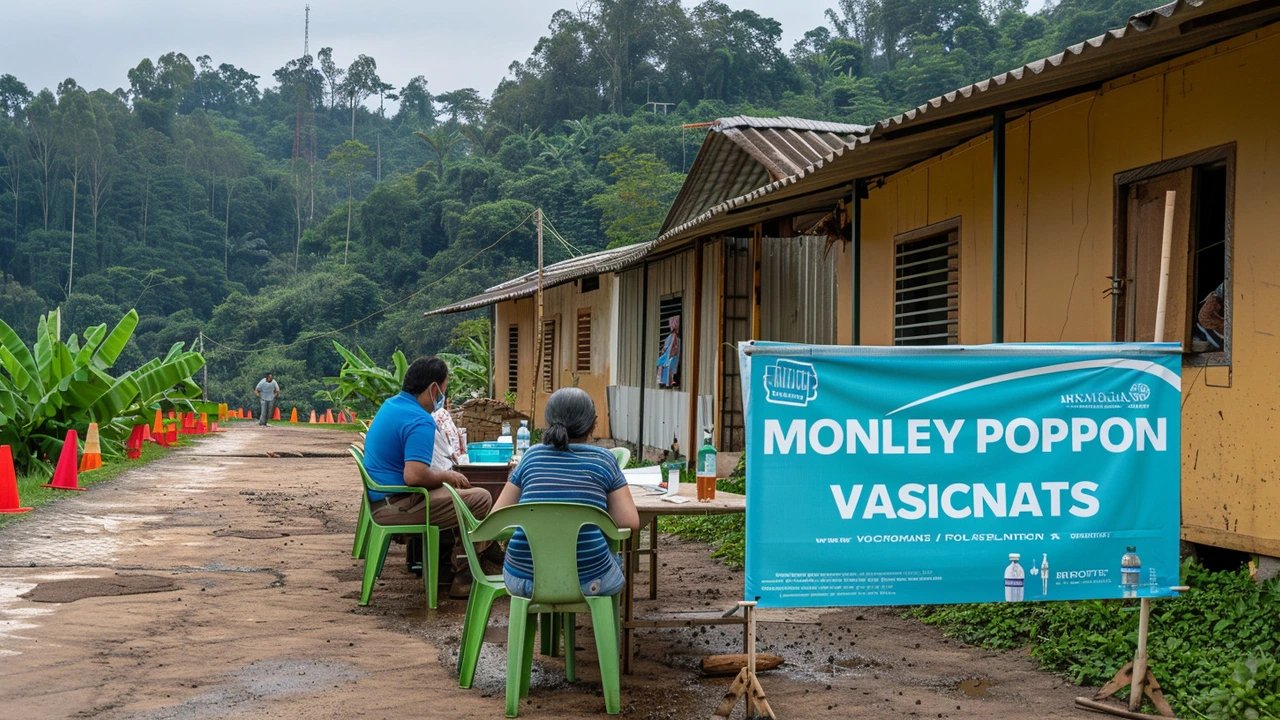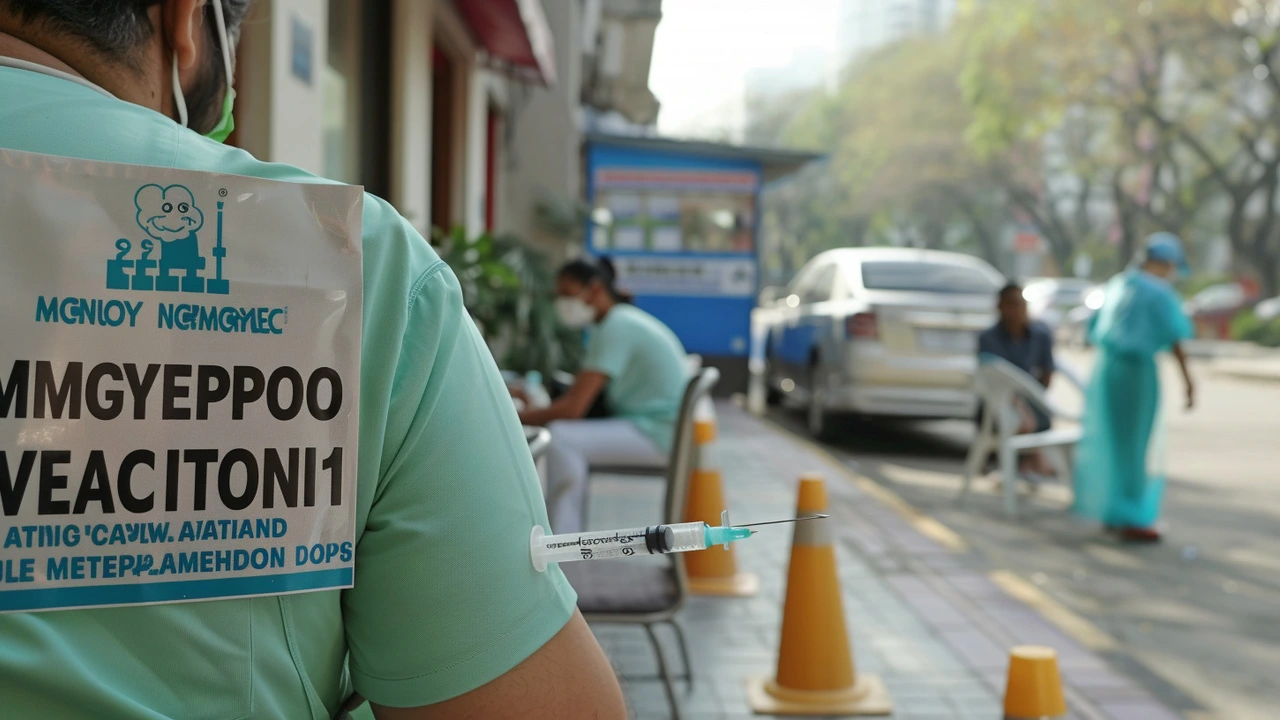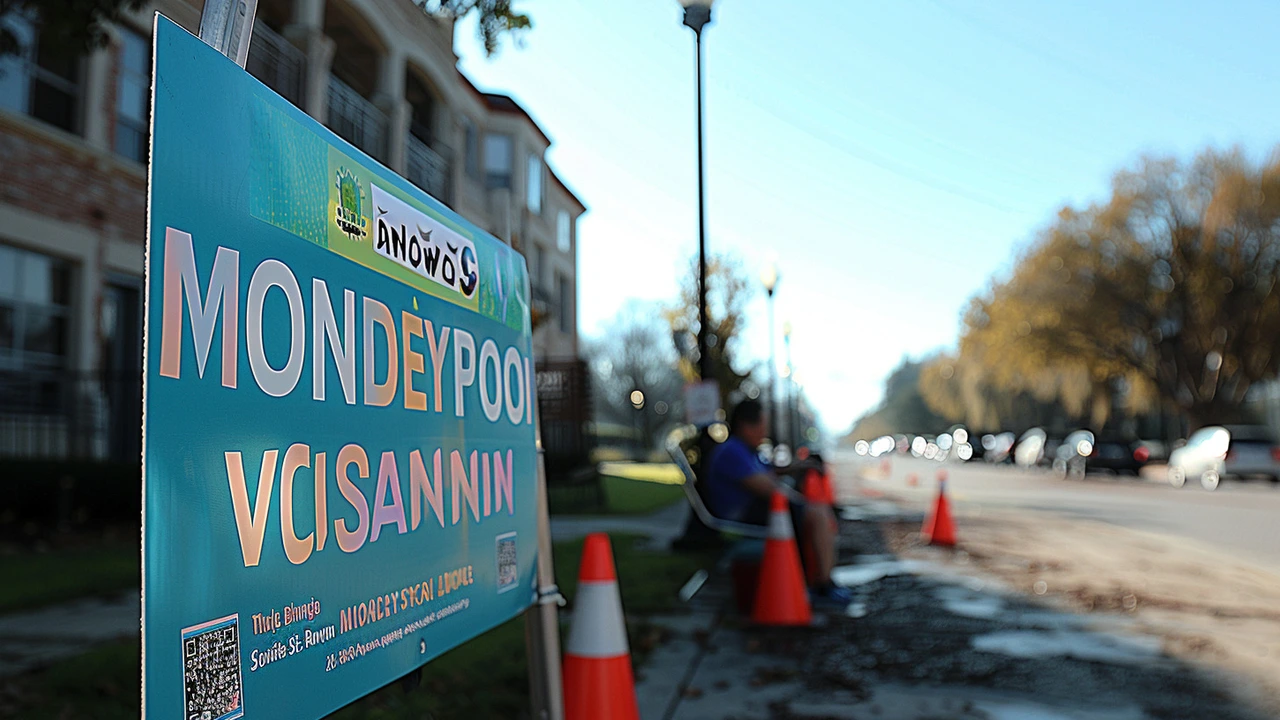Second Mpox Death Heightens Alarm in South Africa
South Africa is reeling from the shock of its second mpox-related death within just one week. The nation’s health ministry revealed that a 38-year-old man from the KwaZulu-Natal province succumbed to the illness shortly after being admitted to a hospital. The patient exhibited a worrying array of symptoms, including extensive lesions, severe headache, persistent fatigue, painful oral ulcers, muscle pain, and a sore throat. He was confirmed positive for mpox on the very day of his untimely death.
Just days earlier, the health ministry had announced the death of its first mpox victim. With these two deaths, the nation is now grappling with a clear and present danger that is drawing urgent attention from both health authorities and the general public. To date, there have been six laboratory-confirmed cases of mpox in South Africa, all traced back to the past five weeks.

Understanding Mpox
Mpox, also known as monkeypox, is a viral illness closely related to smallpox but generally less severe. The World Health Organization (WHO) flagged the global health community in July 2022, declaring it a global health emergency. Though this status lasted for 10 months, the threat has not receded. Mpox spreads through close contact with infected individuals or animals as well as contaminated materials. The symptoms generally present as fever, headache, muscular aches, and swollen lymph nodes, followed by a skin rash.
Global Impact
According to the WHO, more than 97,000 cases of mpox and 186 deaths have been reported worldwide within the first four months of 2024. These figures span across 117 countries, highlighting the far-reaching implications of the disease. The wide dispersion of cases and the significant mortality rate have brought mpox into the global spotlight, stressing the necessity for a global response and proactive measures.
National Response
Health Minister Joe Phaahla has been vocal in urging those with suspected symptoms to seek immediate medical attention. He underlined the importance of trace measures, emphasizing that even one death from a preventable and manageable disease is too many. The six cases reported in South Africa have been notably severe, all involving men in their 30s. This particular demographic trend has baffled healthcare professionals, adding another layer of complexity to the ongoing investigations.
In response to this alarming pattern, the government has announced plans to acquire a stockpile of Tecovirimat treatment, renowned for its efficacy against mpox. This initiative aims to allow for rapid deployment should there be a wider outbreak. The ability to act swiftly is crucial in containing the spread and minimizing the impact of the disease on the population.

Efforts in Prevention and Public Awareness
Surveillance and sample testing have been ramped up across the nation as part of the concerted efforts to identify and isolate cases promptly. Public information campaigns are actively informing citizens about the signs of mpox, stressing the necessity of practicing good hygiene and avoiding close contact with individuals who may be infected. There is a strong push for public vigilance and community involvement in curbing the spread of this viral adversary.
A Call to Action
The recurrence of such a deadly disease calls for an intense focus on preventive healthcare. With the renewed uptick in cases, it is imperative for South Africans to be conscious of their health and report any symptoms that align with mpox. Social behavior, such as maintaining personal distance and prudent use of personal protective equipment in suspected cases, cannot be understated. Vigilance in medical observations, paired with swift healthcare responses, will be the cornerstone of overcoming this challenge.
The tragedy faced by South Africa is a sobering reminder that the battle against infectious diseases is far from over. Continuous research, rapid deployments of treatment, and public health measures are all essential in mitigating the damage caused by mpox. Stakeholders in public health are urged to collaborate and innovate as they face this formidable threat, armed with knowledge, science, and the collective will of the community.
Ultimately, effective management and containment are within reach if there is persistent awareness and systemic action. South Africa stands at a critical juncture, and the lessons learned from these unfortunate deaths may pave the way toward stronger health resilience in the face of future pandemics.






Fabian Rademacher
June 13, 2024 AT 18:26They've hidden the real cure for mpox and are letting us suffer for profit.
Terrell Mack
July 6, 2024 AT 21:59We've got a solid public health response shaping up, and it's encouraging to see the government acting fast. Keeping an eye on symptoms and getting tested early can make a big difference. Stay safe and look out for each other.
Dawn Waller
August 4, 2024 AT 20:26Ah, another tragic headline, and the internet instantly erupts with the same old fear‑mongering clichés!!!
People love to point fingers at the 'big pharma' while forgetting that the virus existed long before any corporation could dream of a vaccine!!!
It's obvious to the conspiratorial mind that every new outbreak aligns perfectly with the rollout of a novel drug!!!
Meanwhile, mainstream media spins the story as if a mysterious monster just appeared out of nowhere!!!
Meanwhile, the real culprits are the shadowy elites who profit from panic selling!!!
Teh authorities keep pushing the narrative that it's all about public health, yet they conveniently ignore the underlying economic incentives!!!
One can't help but notice how the same experts who warned about viruses now endorse pricey antivirals that they hold stakes in!!!
Don't even get me started on the way vaccination campaigns are marketed as "miracle cures" while side‑effects are downplayed!!!
Historically, governments have used health crises to expand surveillance, and this is just another chapter!!!
What about the thousands of undocumented cases that never make the headlines because they don't fit the agenda???
Often, the data is cherry‑picked to create a sense of urgency that justifies draconian measures!!!
The public is urged to stay home, wear masks, and accept any new drug without question!!!
If you look closely, the patterns repeat: fear, control, profit!!!
In short, the narrative is engineered, and the truth is buried under layers of official press releases!!!
Wake up, question everything, and demand transparency!!!
Grace Melville
August 10, 2024 AT 15:19Thanks for the perspective; early detection is key 😊.
Ashlynn Barbery
August 14, 2024 AT 02:39I appreciate the balanced view. The emphasis on prompt medical attention aligns with best practices. It is essential that public health messaging remains clear and evidence‑based.
Sarah Graham
August 21, 2024 AT 01:19Together we can keep the spread under control.
Jauregui Genoveva
August 24, 2024 AT 12:39We must hold ourselves accountable and not ignore the warning signs-our collective responsibility matters 🙏.